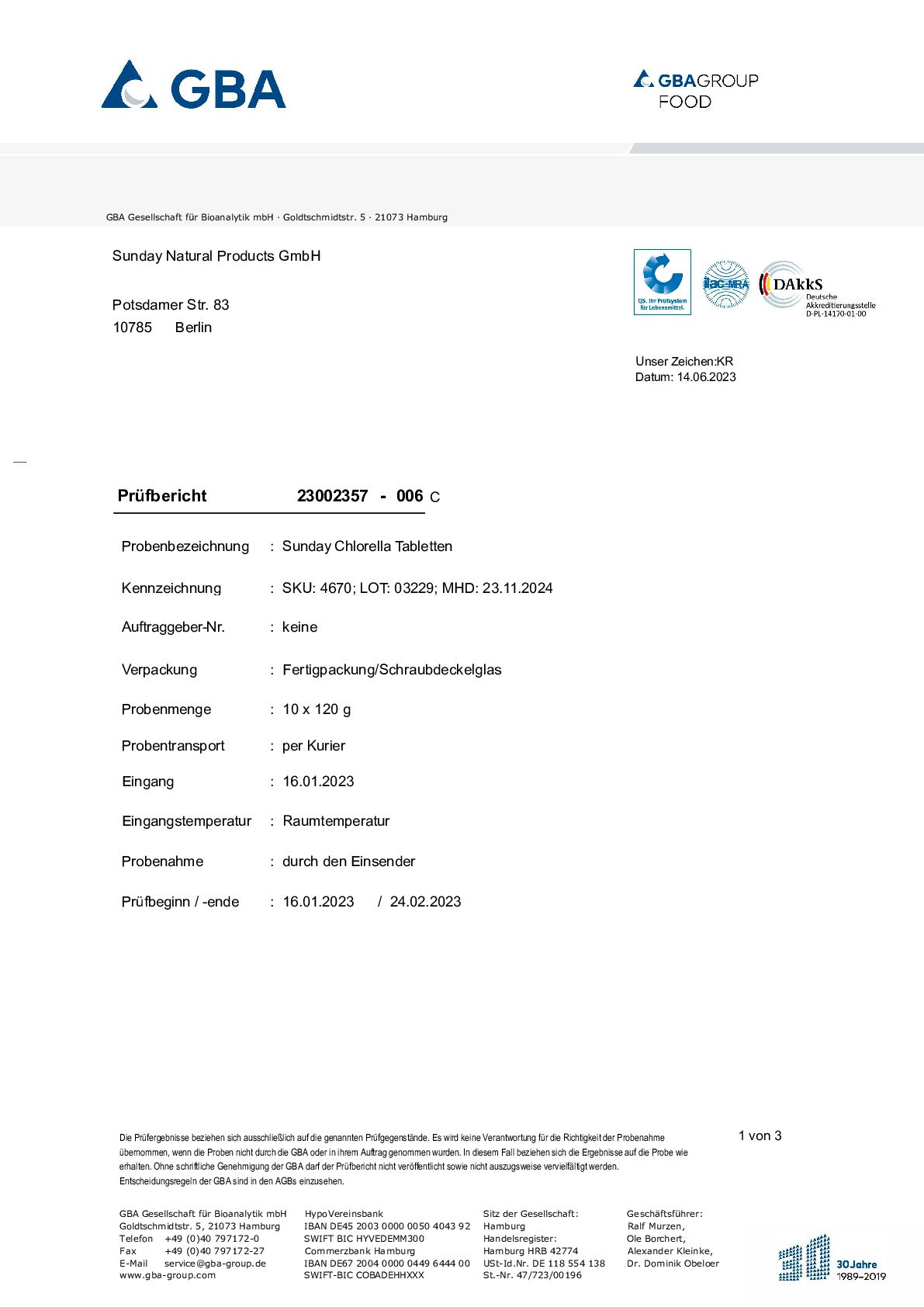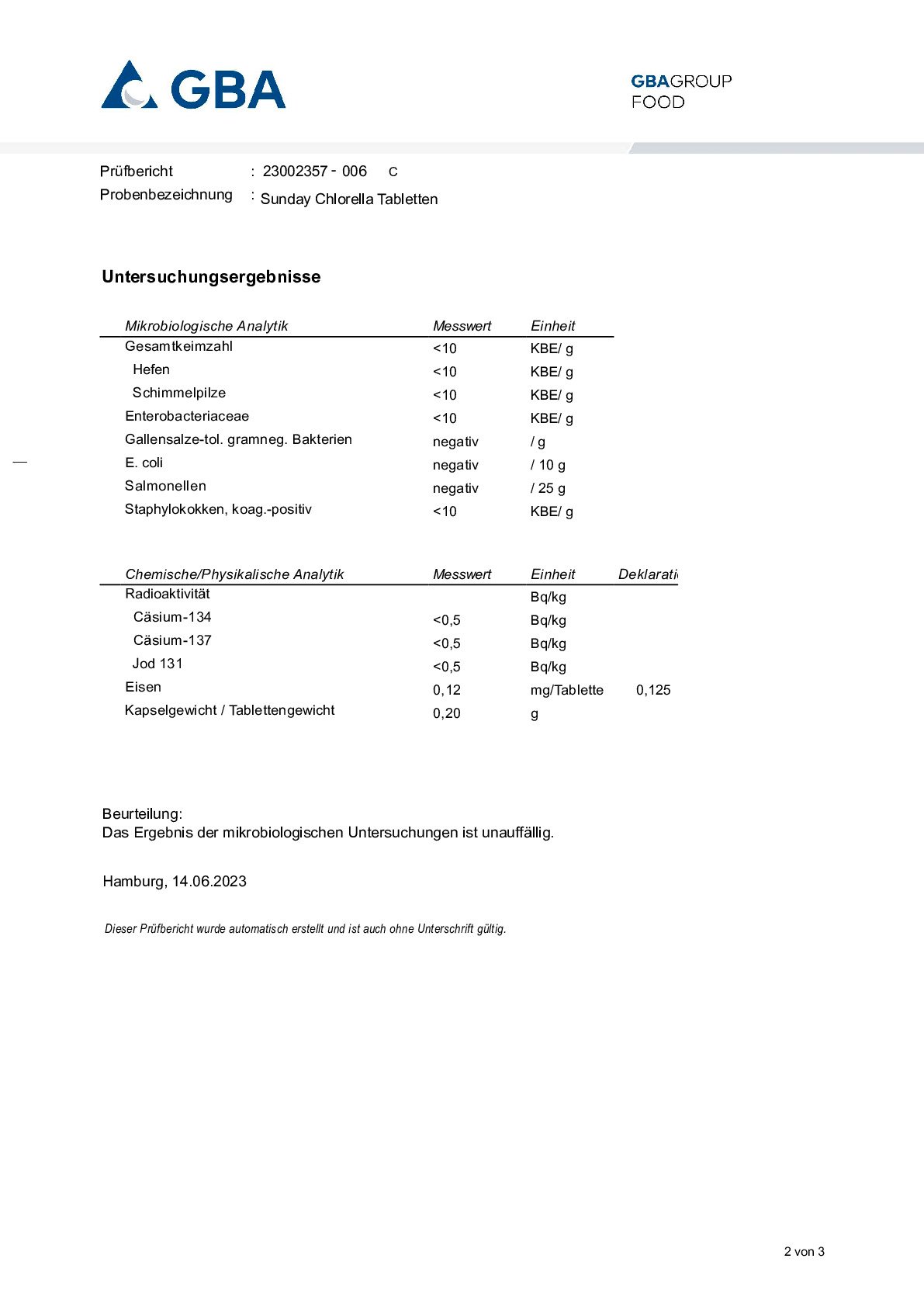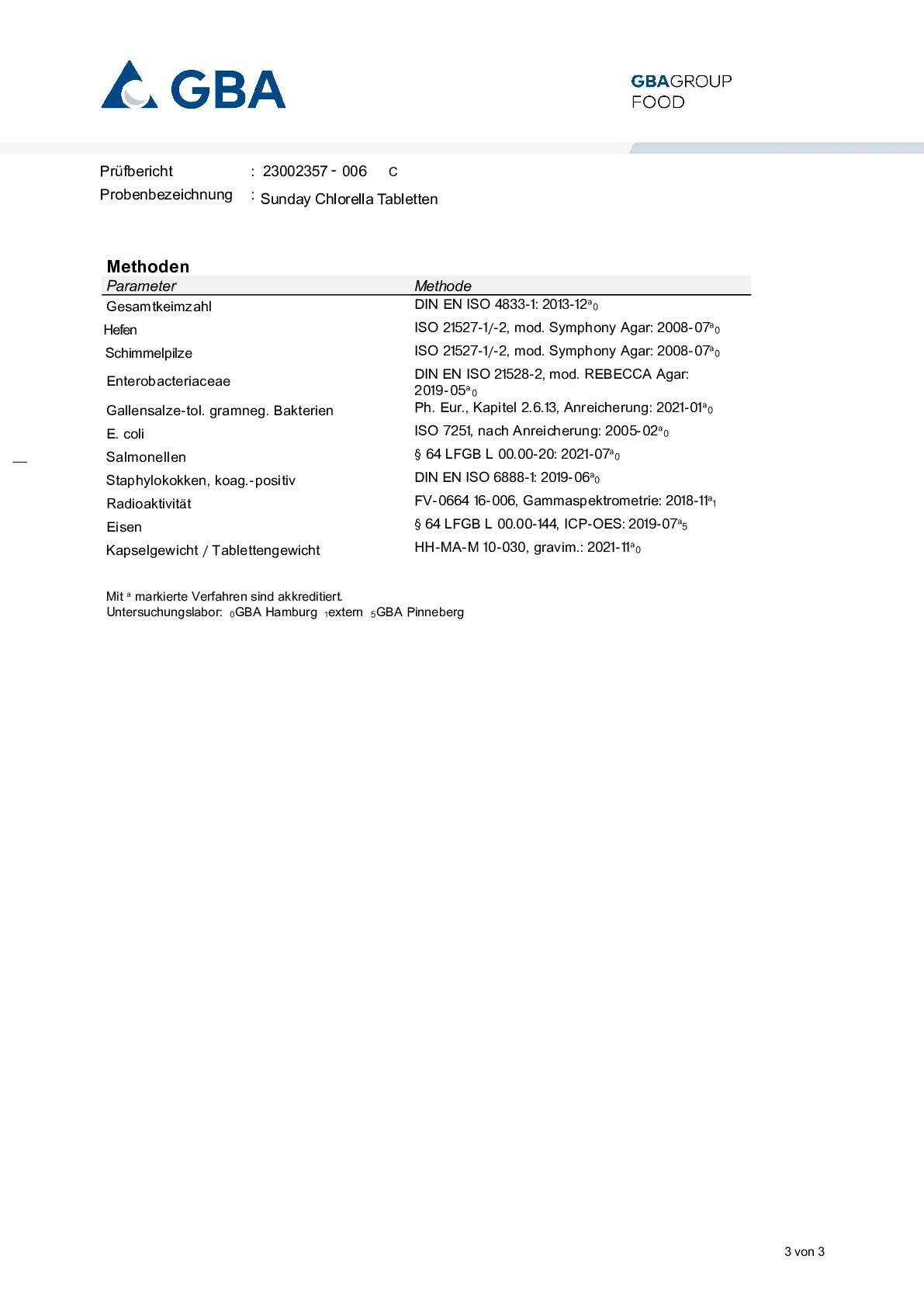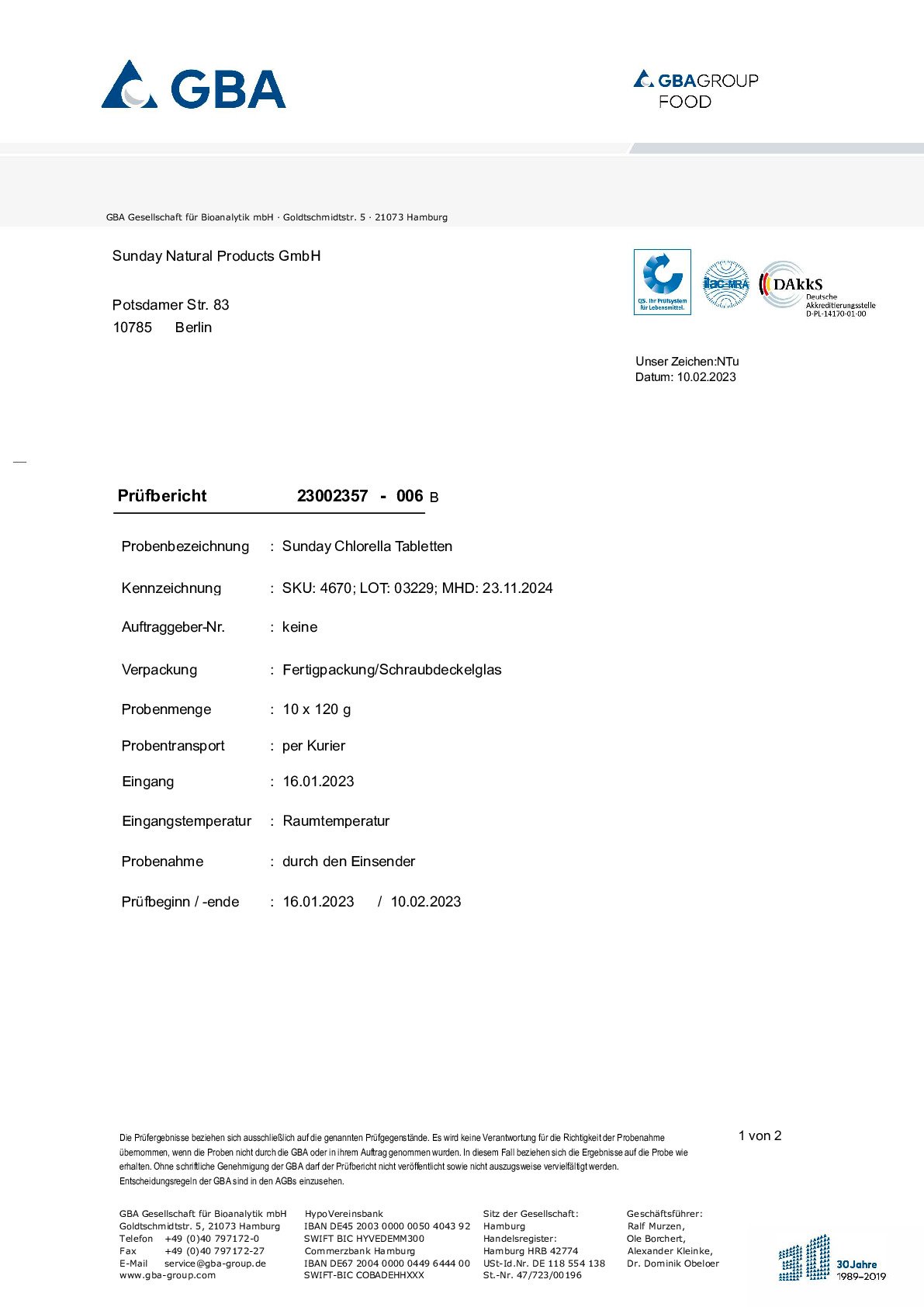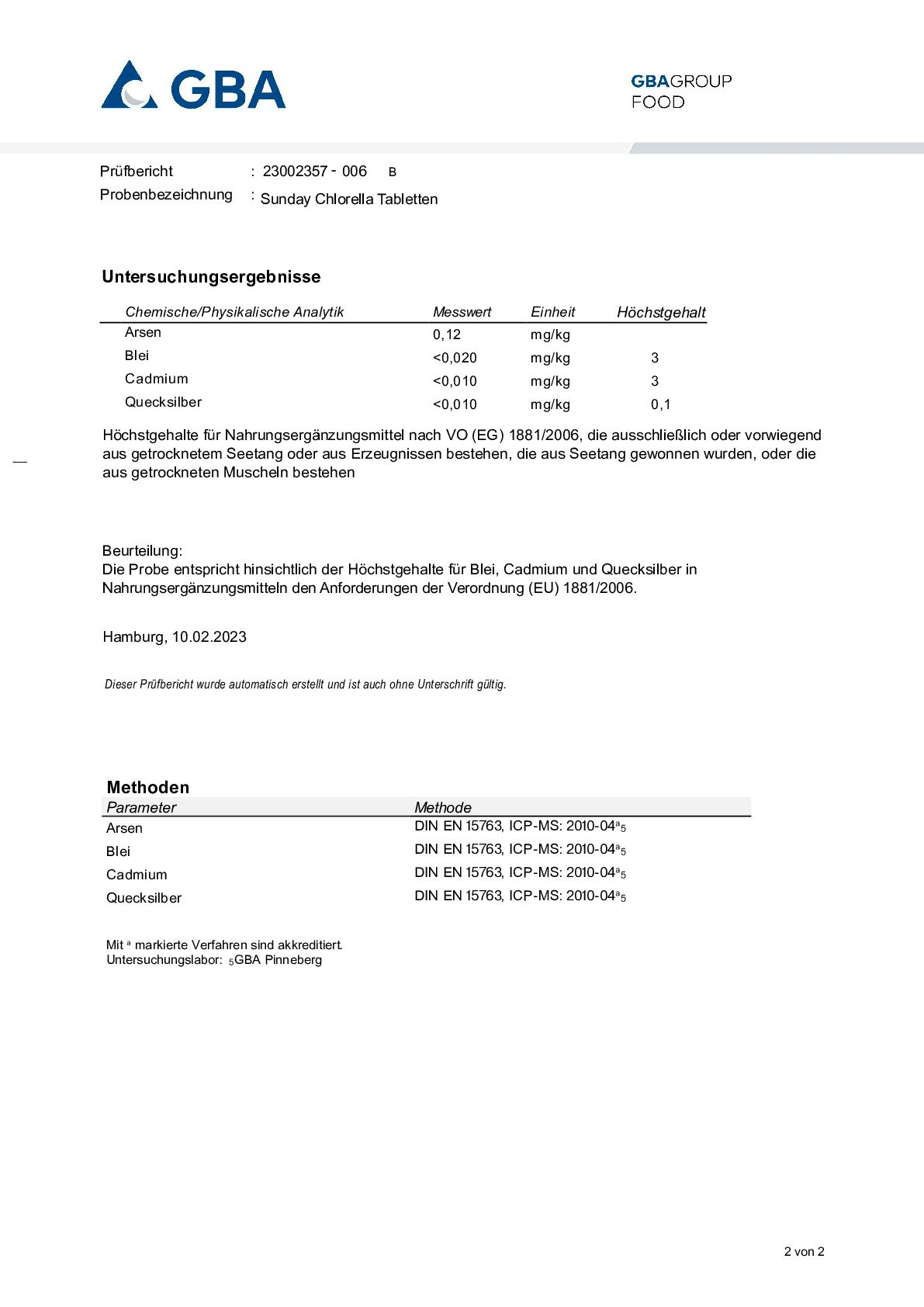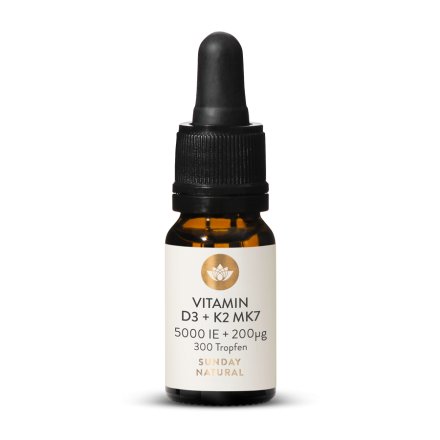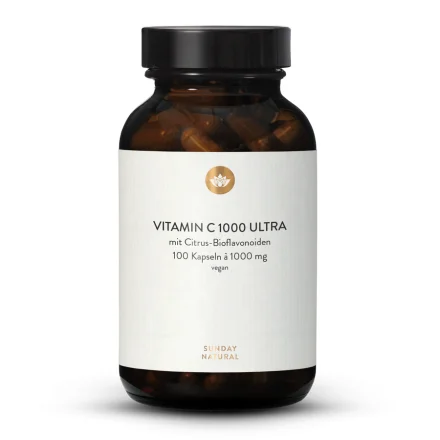Algae are photosynthetic eukaryotes which can be found in almost any body of water in the world, in both freshwater and marine environments. They are an integral part of the cuisine of many cultures due to their compelling taste and valuable properties. Well-known varieties include nori, spirulina, ecklonia and chlorella.
Chlorella Algae
A type of freshwater microalgae, chlorella is one of the oldest life forms on earth. The unicellular eucaryote, only 5–10μm in size, has a spherical shape and an exceptionally high chlorophyll content. Its particularly strong cell walls contain hemicellulose, which offers the cell stability. Chlorella has an extraordinarily fast reproduction rate, with every cell division taking only 16–20 hours. The chlorella growth factor (CGF) contained in the cell nucleus accounts for this high rate. CGF is a unique complex consisting of nucleic acids, nutrients, amino acids, peptides and polysaccharides. Chlorella's unique nutrient profile, its high protein content and its valuable secondary phytochemicals make it an interesting superfood.
Sunday Chlorella from Japan with Nano Cell Walls
Sunday chlorella has a fine nano cell wall which is rich in polysaccharides. At an impressive 82% digestion rate, it ensures optimal retention and bioavailability of its nutrients. Our chlorella also boasts exceptionally high chlorophyll levels at 3100µg/100g due to the ideal conditions in which it is cultivated. Beyond aiding photosynthesis, pigment compounds like chlorophyll are considered potent phytonutrients. Moreover, this freshwater algae is rich in riboflavin, folic acid and vitamin K1 and serves as a valuable source of iron, while containing a far lower amount of iodine than marine algae.





















